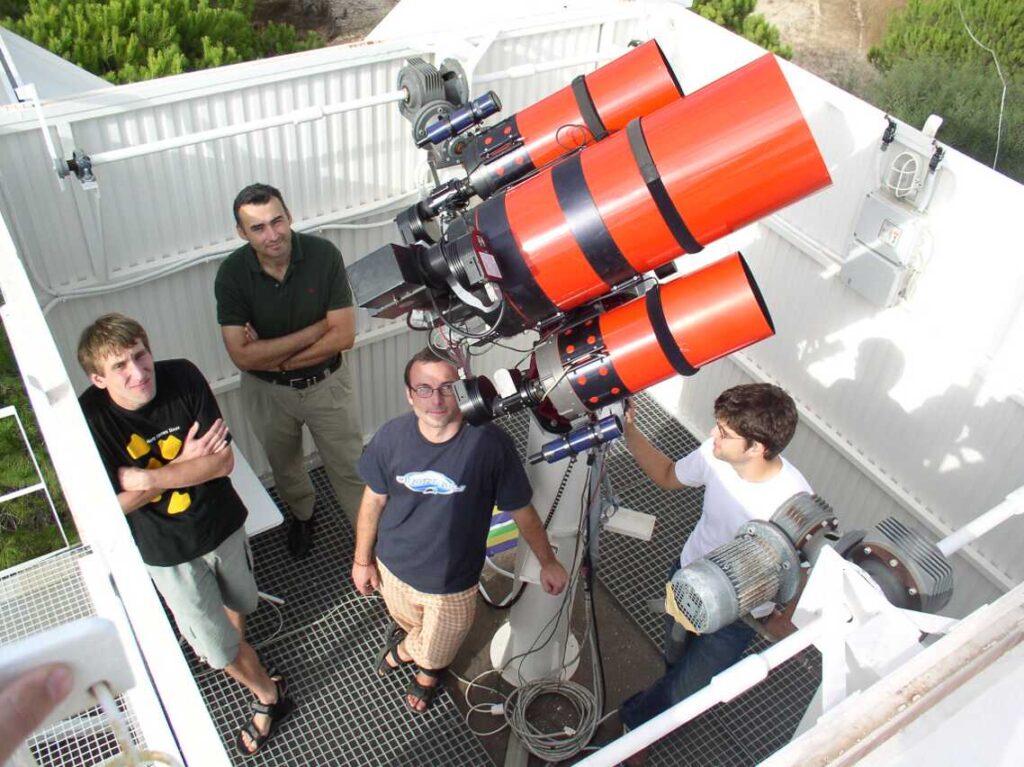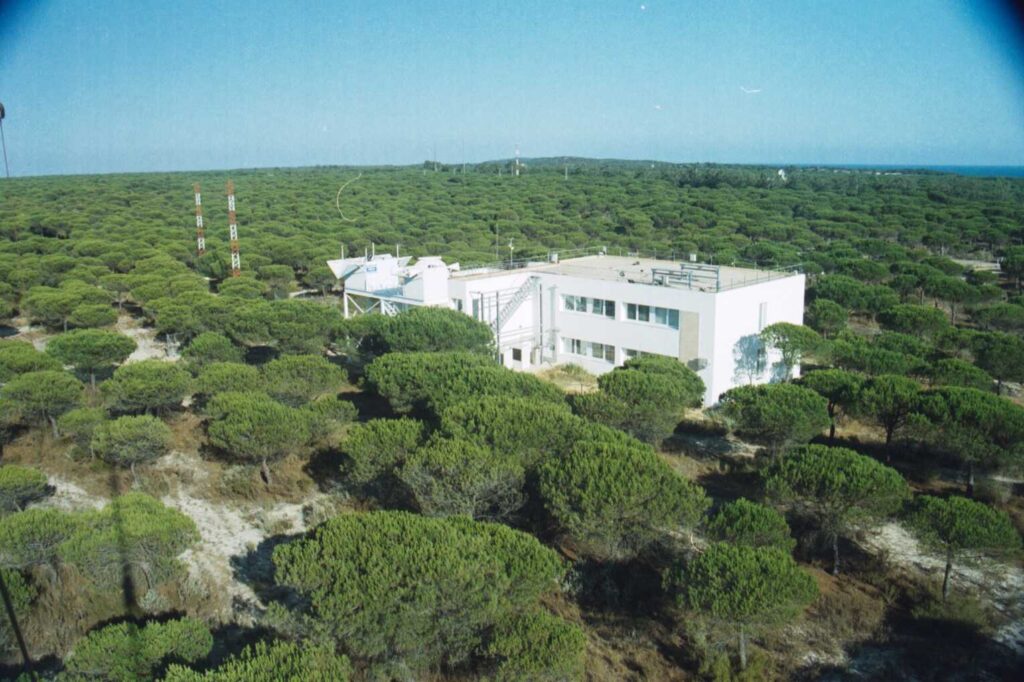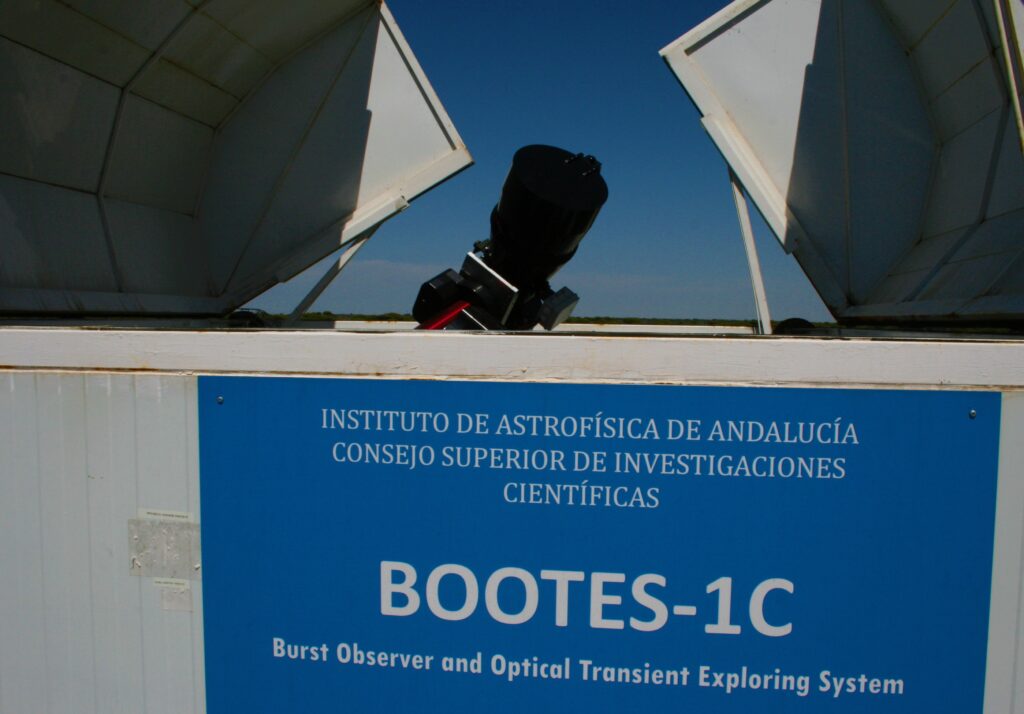The first robotic astronomical observatory in Spain was placed in the INTA’s Estación de Sondeos Atmosféricos (ESAt) at Centro de Experimentación de el Arenosillo in Mazagón (Moguer, Huelva). It has a extraordinary sky close to the Atlantic ocean with more than 300 clear nights at year, limited at the East with the Doñana National Park.
The BOOTES-1 observatory is a collaboration between the Institute of Astronomy of the Institute of Astrophysics of Andalusia (IAA-CSIC), the National Institute for Aeroespace Technique (INTA) and the University of Huelva (UHU), all Spanish institutions.
Since 1998 and during the first two years provided rapid follow-up observations for more than 40 GRBs detected by Batse aboard the CGRO up to its turning-off in May 2000. It consisted of a 0.2m Schmidt-Cassegrain reflector telescope (at f/10) with a CCD camera at the Cassegrain focus providing a 40’x30’ FOV and a couple of CCD cameras attached to the main optical tube providing a 16º x 11º FOV.

Since 2001, with the new location of the existing enclosure 100 m away from the original site, and the addition of the second enclosure (dubbed BOOTES-1B to distinguish it from BOOTES-1A, the old one).

Finally, in June 2022, a new enclosure been added to this station (BOOTES-1C):

Nowadays, the BOOTES-1 astronomical station instrumental setup is the following one:
| BOOTES-1A | ||
| Mount | Bisque Paramount | |
| CCD0 | CCD1 | |
| CCD | Moravian G4-16000 | Moravian G4-16000 |
| Focal Length | 135 mm | 400 mm |
| F | f/2 | f/2.8 |
| Field of view | 15.8 deg | 5.4 deg |
| BOOTES-1B | |
| Mount | Bisque Paramount |
| CCD | Andor iXon EMCCD |
| Focal Length | 1635 mm |
| F | f/5.45 |
| Field of view | 16.7 arcmin |
| – | – |
| CCD | All-sky CASANDRA-1 |
| Field of view | 180 deg |
| BOOTES-1C | |
| Mount | Bisque Paramount |
| CCD | Andor iKon L |
| Focal Length | 323 mm |
| F | f/1.1 |
| Field of view | 4.9 deg |